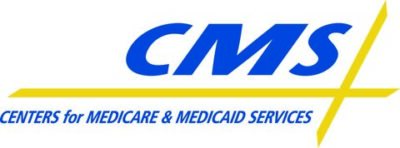The need for home health aides is growing fast, with a 33% increase expected by 2030. They play a key role in helping people with daily tasks. A-Team Home Care in Philadelphia offers skilled care, including home health aides, at affordable prices.
Most older adults want to stay in their homes, making in-home care vital. A-Team Home Care is dedicated to quality care.
A-Team Home Care: #1 Home Health Care Agency & Senior Care in Philadelphia & Suburbs
- Home health aides play a vital role in providing care and support to individuals who require assistance with their daily living activities.
- The demand for home health aides is projected to grow by 33% from 2020 to 2030, making it a rewarding career for those who are passionate about helping others.
- A-Team Home Care, the best home care company in Philadelphia, provides affordable in-home care services to those in need.
- Home health aides can reduce hospital readmission rates by 25% through effective monitoring and communication with healthcare professionals.
- 70% of families express increased peace of mind when hiring a home health aide for their loved ones, highlighting the importance of trustworthy and skilled caregivers.
- Home health aides typically undergo a training program that ranges from 75 to 120 hours, depending on state regulations, to ensure they have the necessary skills to provide high-quality care.
Understanding the Role of a Home Health Aide
Home health aides are key in the healthcare world. They help people who need help with daily tasks. Their job includes giving medicine and checking health signs. Good communication is key to help patients understand their health better.
They help with daily tasks like bathing and dressing. They also keep people company, which is very important for the elderly. Home health aides need to know basic medicine to do their job well.
Home health aides take care of patients by checking their health and giving emotional support. They work in homes, group homes, and day programs. Home health care helps the elderly and disabled by providing personal support and helping them recover faster.
- Personal support for daily living
- Streamlined hospitalization recoveries
- Safety measures
Being a home health aide can be tough, needing strength and stamina. They must be professional and keep patient information private. Always learning and improving is important for them to do their job well.
Home Health Aide Skills: The Foundation of Quality Care
Home health aide skills are key to quality care. They let people get support at home and stay independent. Good communication is vital. It helps aides share important info and offer emotional support to patients and their families.
Having strong skills, aides can give care that meets each patient’s needs. They help with daily tasks like bathing and dressing. They also remind patients to take their meds and prevent falls. This way, aides greatly improve patients’ lives and well-being.
Some important skills for home health aides include:
- Compassion and empathy
- Organizational and time management skills
- Adaptability and flexibility
- Cultural sensitivity and respect
- Basic medical knowledge
With these skills, aides can focus care on what patients need and want. This leads to better health, happier patients, and a better life overall.
Professional Requirements and Certifications
To become a home health aide, you need to meet certain requirements. You must have a high school diploma or its equivalent. Also, you need to finish a state-approved training program.
Training programs differ in length. But, most require home health aides to get continuing education credits or hours every few years. This is to renew their certification.
Some important state licensing requirements include being at least 16 years old. You also need a criminal record clearance and an active Certified Nursing Assistant (CNA) certificate. Home health aides must also complete a 40-hour or 120-hour training program approved by the state.
This program includes an exam to test their knowledge and skills in basic patient care. For example, A-Team Home Care stresses the need for ongoing training and education for their aides.
Some key certifications for home health aides are:
- Certified Home Health Aide (CHHA)
- Certified Dementia Practitioner (CDP)
- Certified Alzheimer’s Disease and Dementia Care Trainer (CADDCT)
These certifications show a home health aide’s skill in providing care at home. With more demand for dementia care, having these certifications can help them stand out. Ongoing training opportunities are also crucial for home health aides to keep up with new care methods and technologies.
Essential Medical Care Competencies
Home health aides are key in giving top-notch care to patients. They need essential skills to do their job well. With 40% of Americans having a chronic condition, medical care competencies are more important than ever.
Important medical care competencies include watching fluid and food intake and knowing about diets. Home health aides also need basic medical knowledge and skills like CPR. Some states require extra training on food labels and preventing abuse.
Research shows patients who help decide their care do better. They have better outcomes and are happier. Home health aides need good communication and interpersonal skills to help patients make these decisions.
In summary, medical care competencies are vital for home health aides. Training and certification programs help them provide the best care. This leads to better health outcomes and happier patients.
Personal Care and Hygiene Assistance Skills
Personal care skills are key for keeping people clean and healthy. This is especially true for older adults and those with disabilities. Home health aides are crucial in helping with these tasks. They assist with bathing, grooming, and even helping with food and medicine.
These skills help keep clients feeling dignified and independent. They also prevent issues like skin problems and infections.
Some important personal care skills include:
- bathing and grooming techniques, such as proper oral care and nail care
- mobility assistance, including helping clients with getting in and out of bed, chairs, or wheelchairs
- dietary support, such as meal planning and preparation, and providing medication reminders and assistance
Emotional support and companionship are also vital. Caregivers help clients feel better by talking and doing activities together. This makes clients feel more comfortable and secure.
There’s a growing need for skilled caregivers. They must be able to offer top-notch care and support. Home health aides with strong skills in hygiene assistance and mobility assistance are best for this job.
By providing bathing and grooming techniques, dietary support, and more, they help clients live better lives. They keep clients independent and happy.
Communication and Interpersonal Abilities
Good communication is key to strong patient relationships and quality care. Home health aides need to be great at talking to show empathy and support. Active listening is important to understand patients’ needs and feelings, building trust.
Body language, facial expressions, and touch also matter a lot. Caregivers must pay attention to these signs to give the right care. They also need to adjust how they talk to fit each patient’s needs, like those with language or cultural differences.
Some important ways to communicate well in home care include:
- Using simple language and non-verbal cues for those with cognitive issues
- Learning basic phrases and cultural norms to overcome language barriers
- Practicing active listening and empathy to build trust and understanding
- Encouraging open and regular communication to improve patient engagement and satisfaction
By improving their communication and interpersonal skills, home health aides can offer better care. This leads to happier patients and stronger relationships. They are crucial in meeting patients’ physical, emotional, and social needs, and good communication helps a lot.
Emergency Response and Safety Protocols
Emergency response and safety protocols are key for home health aides. They ensure the well-being and safety of their patients. Having first aid knowledge and being able to respond to emergencies is vital. The National Association for Home Care & Hospice (NAHC) says home care agencies help during emergencies.
A key part of emergency response is crisis management. This means being ready for events like hurricanes and flooding. The Hazard Vulnerability Assessment tool helps evaluate risks. Home care clinicians are trained to assess patients and provide personalized care.
Effective safety procedures include having essentials like food and water ready. Caregivers need to know CPR and first aid. A good emergency plan ensures patients get the care they need.
Home health aides must understand the importance of emergency response and safety protocols. Being prepared and skilled makes a big difference in patients’ lives.
Documentation and Reporting Excellence
Accurate and timely documentation is key in home health care. It affects the quality of patient care greatly. Good reporting helps track patient progress and spot areas for betterment. This leads to better care for patients.
Digital health records and communication tools make documentation and reporting better. They let healthcare pros update patient info quickly. This cuts down on mistakes and boosts care quality. Using these techs, home health care can offer top-notch documentation and reporting, leading to better patient care.
- Accurate and detailed patient information
- Timely updates and progress notes
- Clear and concise communication with other healthcare professionals
Home health care providers should focus on documentation and reporting excellence. This improves patient results, lowers costs, and raises care quality. It also makes patients happier, keeps staff loyal, and strengthens the healthcare’s image.
The A-Team Home Care Difference in Philadelphia
A-Team Home Care is a top choice in Philadelphia for home health care. It offers industry-leading training programs for its caregivers. This ensures they can meet each patient’s specific needs.
With over 20 years in senior care, A-Team Home Care is a trusted name. It provides top-notch home care services in Philadelphia.
What makes A-Team Home Care stand out is its competitive compensation and benefits. This attracts the best caregivers and keeps them. The company also has a strong support system for caregivers. It offers ongoing training and support.
Choosing A-Team Home Care in Philadelphia comes with many benefits. These include:
- Personalized care plans tailored to each patient’s unique needs
- Exceptional home care services provided by highly trained caregivers
- A support system that ensures caregivers have the resources they need to succeed
By picking A-Team Home Care in Philadelphia, patients get quality home health care. It’s tailored to their needs. With its industry-leading training programs, competitive compensation, and support system, A-Team Home Care is the best choice in Philadelphia.
Technology and Modern Care Solutions
The healthcare world is changing fast, and technology is key. Digital health records and communication tools help home health aides give better care. They can now easily access patient info, track progress, and talk to other doctors.
Using digital tools is now a must for rehab pros to meet patient needs. Patients who use digital tools stick to their treatment plans better. Keeping in touch virtually is key to keeping patients motivated and on track with their rehab.
Digital Health Records and Communication Platforms
Digital health records keep patient info safe and easy to manage. Caregivers can check on patients, see how they’re doing, and talk to other doctors quickly. Communication tools let patients, caregivers, and doctors talk from anywhere, making care better and more coordinated.
Technology brings many benefits to care. It helps caregivers give more tailored and effective care, leading to better health outcomes. Digital tools also cut down on mistakes, improve talking between teams, and make patients happier. With tech, home health aides can offer top-notch care that fits each patient’s needs.
Building Long-Term Patient Relationships
Creating strong patient relationships is key for home health aides. It lets them give care that fits each patient’s needs. This approach leads to better health and happier patients. It’s all about talking well, showing empathy, and building trust.
In long-term care, home health aides manage care for many patients. They need to be organized to do their tasks right. Showing kindness and support helps patients follow their care plans and get better faster.
Here are some ways to build strong patient relationships:
- Active listening and open communication
- Empathy and emotional support
- Personalized care plans tailored to individual patient needs
Using these methods, home health aides can gain trust and understanding from their patients. This leads to better health and happier patients. As more people need home health aides, it’s vital for them to focus on building strong patient relationships.
Advancing Your Home Health Aide Career with A-Team
Starting your career as a home health aide is exciting. Partnering with A-Team Home Care can help you reach new heights. They offer top-notch training programs and competitive compensation.
This will help you grow your skills and provide top-notch patient care. A-Team’s supportive system values your hard work. It empowers you to grow your career and make a real difference.
Ready to start a fulfilling career in home health care? Join A-Team today and take the first step towards a rewarding future.



















